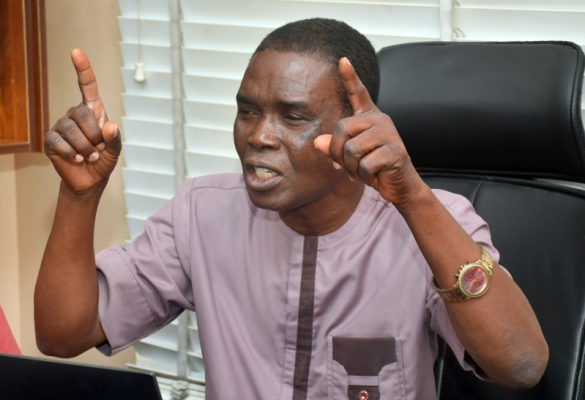Contrary to popular belief, sugar is not a direct cause of non-communicable diseases (NCDs), a Nigerian medical expert has asserted, urging the public and policymakers to shift from fear-driven narratives to evidence-based approaches.
A medical parasitologist and Senior Lecturer at Eko University of Medicine and Medical Sciences, delivered the remarks at a one-day health workshop organised by the Community Health Empowerment Foundation in Lagos.
The event, themed “Debunking the Linkages Between Non-Communicable Diseases and Sugar-Sweetened Beverages (SSBs)”, brought together health reporters and stakeholders to scrutinise the science behind sugar, metabolism, and chronic diseases.
According to Pan American Health Organization (PAHO), NCDs refers to a group of conditions that are not mainly caused by an acute infection, result in long-term health consequences and often create a need for long-term treatment and care.
Dr Iboma pointed out that research does not definitively link moderate sugar intake to non-communicable diseases, referencing studies published in the European Journal of Internal Medicine (2022) and Frontiers in Nutrition (2023).
He argued that unhealthy eating habits, lack of physical activity, and genetic factors, rather than sugar alone, are the primary drivers of these conditions.
Read Also: Yobe, UNICEF train local actors to boost response to malnutrition, emergencies
He stressed the vital biological role of glucose, the body’s primary energy source, noting that the human brain alone consumes about 20% of glucose at rest.
When consumed in moderation and alongside fibre, protein, and micronutrients, sugar supports muscle recovery, nutrient absorption, and overall health.
“Carbohydrates, including sugars, are not enemies. The problem is not sugar—it’s imbalance. Overconsumption without physical activity is the issue,” he explained.
Dr Iboma also questioned the effectiveness of Nigeria’s Sugar-Sweetened Beverage (SSB) tax, introduced in 2022 to curb unhealthy consumption.
He warned that taxation without scientific rigour could be both ineffective and regressive, referencing case studies from Mexico, the UK, and South Africa where sales dropped temporarily but NCD rates remained largely unchanged.
Instead, he advocated a multi-pronged approach involving nutrition education, community fitness initiatives, and public-private partnerships to promote healthier dietary choices.
He also urged journalists to report health science responsibly, “When science is oversimplified, the public suffers. The media has a duty to educate, not alarm.”
The workshop urged the Federal Government to fund science-based awareness campaigns, with Dr Iboma stressing that only a holistic, evidence-driven approach can curb Nigeria’s rising NCD rates.



